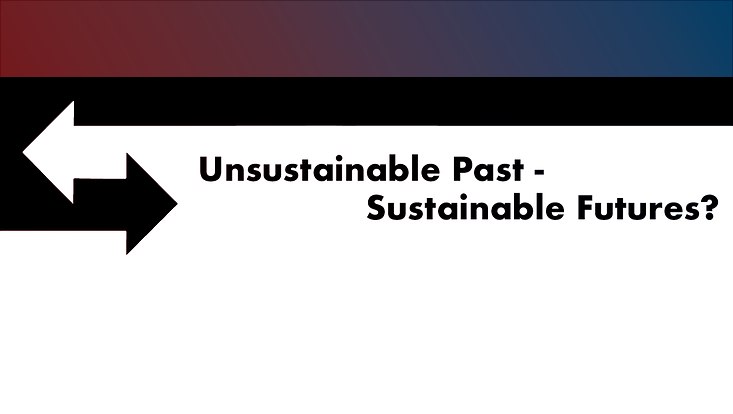Society Research
Humanities Centre for Advanced Studies Futures of SustainabilityConference report of the Annual Conference 2021 "Unsustainable Past - Sustainable Futures?"
24 February 2021, by CSS

Photo: E. Boßerhoff
***this is a translation of the news article on the Centre's website***
The Humanities Centre for Advanced Studies "Futures of Sustainability" has published the report of their Annual Conference 2021. With the topic "Unsustainable Past - Sustainable Futures?", the conference took place digitally on 11 and 12 February.
After a keynote by Dipesh Chakrabarty (Chicago) on sustainability and habitability, David Spratt (Melbourne) and Ulrike Kornek (Kiel) discussed what kind of political action is needed to address the profound challenges of global warming. The presentations by Kohei Saito (Osaka) and Giacomo D'Alisa (Coimbra) showed a proximity between ecosocialism in the Marxian tradition and the degrowth movements as two possible paths of social transformation. In a final discussion, the participants took up the central question of the conference from very different perspectives: to what extent is a sustainable future still possible?
You can find out more about the conference here on the website of the Centre [in German] or have a look at the recordings of the talks on the Centre's Youtube Channel.
Humanties Centre for Advanced Studies "Futures of Sustainability"
The Humanities Centre for Advanced Studies "Futures of Sustainability: Modernization, Transformation, Control" is receiving funding by the German Research Foundation (DFG) since 2019 and is headed by Prof. Dr. Sighard Neckel and Prof. Dr. Frank Adloff. The Centre aims to deal with the question of how modern societies change when they are guided by different notions of sustainability. Three development paths of sustainability will receive special sociological attention: Modernisation, transformation, control. These development paths do not only indicate what ideas of the future are disputed today. They also mark new lines of conflict, patterns of inequality and power hierarchies that are linked to the various objectives of sustainability.
The Centre serves primarily to develop theories and analytical syntheses in the diagnosis of society. It works discursively and invites international fellows, especially from the social sciences and humanities, to participate in research. Lectures, seminars, workshops and conferences take place regularly. At the same time, the Centre addresses the general public and seeks exchange with social actors who integrate sustainability criteria into their practice. (Source: Website of the Centre)
You can also follow the Centre's activities on Twitter.


